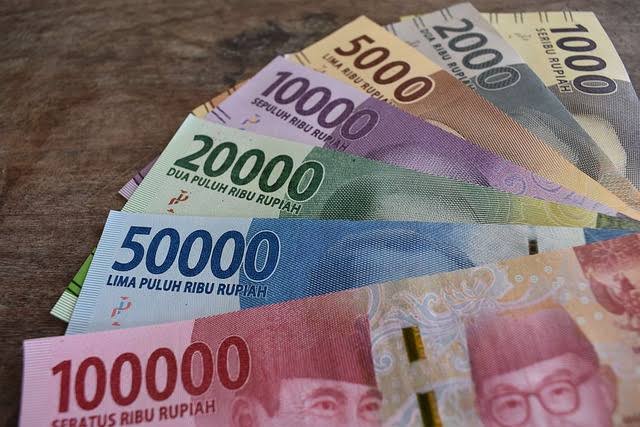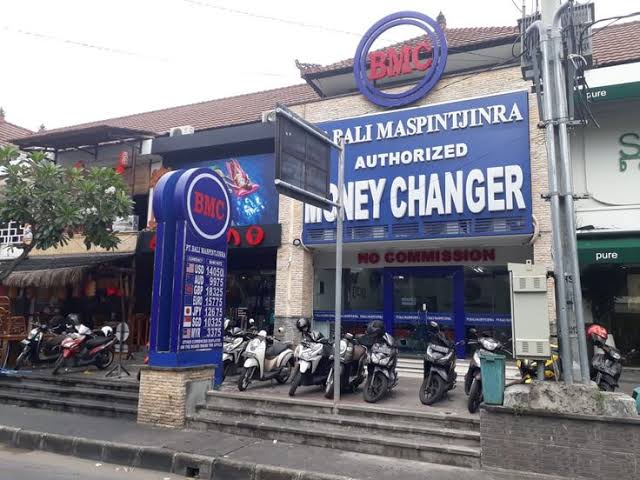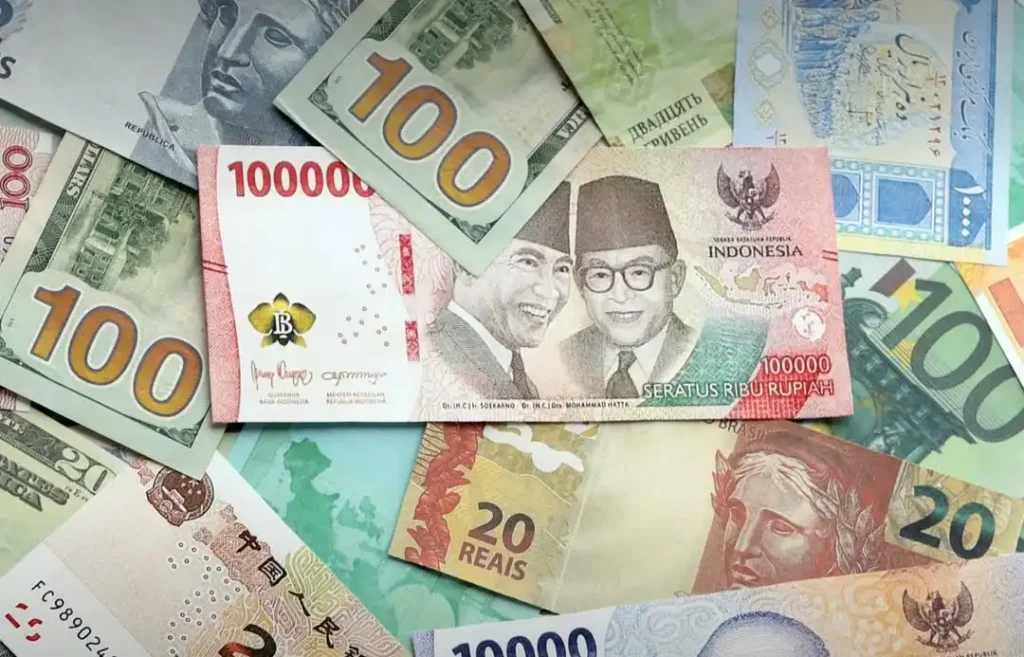Money Matters in Bali
Planning a trip to the enchanting island of Bali? While visions of stunning beaches and vibrant culture fill your mind. Understanding the local currency, navigating ATMs, and mastering tipping etiquette are crucial for a smooth and enjoyable experience. This comprehensive guide covers everything you need to know about managing your money in Bali.
Understanding the Indonesian Rupiah (IDR): Money Matters in Bali and Bali’s Official Currency

The official currency of Bali, and indeed all of Indonesia, is the Indonesian Rupiah (IDR). You’ll typically see prices marked with the symbol “Rp” followed by the amount.
Key things to know about IDR:
- Denominations: Rupiah banknotes come in denominations of Rp 1,000, Rp 2,000, Rp 5,000, Rp 10,000, Rp 20,000, Rp 50,000, and Rp 100,000. Coins are also available (Rp 100, Rp 200, Rp 500, Rp 1,000) but are less commonly used for everyday transactions due to their low value.
- “Zeros” can be confusing: Due to the large numbers, it can take a moment to adjust. A helpful tip is to remember that Rp 10,000 is roughly equivalent to $0.60 – $0.70 USD (or around £0.50 GBP). So Rp 100,000 is about $6 – $7 USD.
- **Cash is King (especially for smaller purchases): While credit cards are widely accepted in hotels, larger restaurants, and shops in tourist areas, many smaller vendors, local warungs (eateries), taxis, and market stalls still prefer or only accept cash. Always carry a mix of denominations. Especially smaller bills, as change for large notes (like Rp 100,000) can sometimes be an issue at smaller establishments.

Where to Exchange Money:
- Authorized Money Changers: These offer better rates than airports or hotels. Look for official, licensed money changers, especially those with good reviews or attached to banks. Avoid street money changers offering unusually high rates, as these can be scams.
- Airports and Hotels: While convenient, airport money changers and hotels generally offer less favorable exchange rates. Use them only for a small amount to get started if necessary.
Navigating ATMs in Bali: Tips for Safe Withdrawals to avoid the Money Matters in Bali
ATMs are widely available in Bali, especially in popular tourist hubs like Kuta, Seminyak, Ubud, and Nusa Dua. They are generally reliable, but it’s important to be cautious.
ATM Best Practices:
- Location, Location, Location:
- Safest Option: Use ATMs located inside or directly next to a bank branch. These are typically more secure and have CCTV surveillance.
- Good Option: ATMs inside reputable mini-marts or shopping malls are generally safe.
- Avoid: Standalone ATMs in dimly lit or isolated areas, especially those that look old or have unusual attachments, as these are more susceptible to skimming devices.
- Withdrawal Limits: ATMs in Bali typically dispense either Rp 50,000 or Rp 100,000 notes. There are often per-transaction withdrawal limits (e.g., Rp 1,250,000 for Rp 50,000 note machines, and Rp 2,500,000 – Rp 3,000,000 for Rp 100,000 note machines). You may need to make multiple withdrawals for larger amounts.
- Dynamic Currency Conversion (DCC): When using an ATM. The system will ask if you want to use in IDR or your home currency. ALWAYS choose in IDR. Choosing your home currency (DCC) allows the ATM provider to set the exchange rate, which is almost always worse than your bank’s rate.
- Card First, Then Cash: Be aware that some ATMs in Bali dispense the cash before returning your card. Double-check to ensure you’ve retrieved your card before walking away!
- Notify Your Bank: Before you travel, inform your bank of your travel dates and destinations to prevent your card from the blocked due to suspicious overseas activity. Inquire about any foreign transaction fees or ATM withdrawal fees your bank may charge.
- Major Banks: Look for ATMs from reputable Indonesian banks such as Bank Central Asia (BCA), Bank Mandiri, Bank Negara Indonesia (BNI), and Bank Rakyat Indonesia (BRI).
Tipping Etiquette for money in Bali: A Gesture of Appreciation

Unlike some Western countries where tipping is mandatory, tipping in Bali is generally not obligatory but the driver will appreciate it as a gesture of gratitude for good service. It helps supplement the income of local workers.
General Tipping Guidelines:
- Restaurants & Cafes:
- Service Charge Included: Many mid-range to high-end restaurants will automatically add a 5-10% service charge (often in addition to a government tax). If a service charge is included, an additional tip is not strictly necessary, but you can round up the bill or leave a small extra amount (e.g., Rp 10,000 – Rp 20,000) for exceptional service.
- No Service Charge: For smaller, local warungs, tipping isn’t expected, but leaving Rp 5,000 – Rp 10,000 for a good meal is a kind gesture.
- Taxi Drivers & Ride-Sharing (Gojek/Grab): They don’t expect the Tips. You can round up the fare to the nearest Rp 5,000 or Rp 10,000. For longer journeys or excellent service, a bit more is always welcome.
- Tour Guides & Drivers: For private drivers or tour guides on full-day excursions, a tip of Rp 50,000 – Rp 100,000 (or more for outstanding service) per day is customary and highly appreciated.
- Hotel Staff:
- Porters/Bell Staff: Rp 10,000 – Rp 20,000 per bag.
- Housekeeping: Rp 10,000 – Rp 20,000 per day left discreetly in the room.
- Spas & Massages: If a service charge isn’t included, 10-15% of the treatment cost is a good guideline for a good massage or spa treatment.
- General Rule: When in doubt, a small amount like Rp 10,000, Rp 20,000, or rounding up the bill is a safe and appreciated approach. Always tip in Rupiah.

Final Financial Tips for Your Bali Trip:
- Mix of Payment Methods: Carry a combination of cash (especially smaller denominations), debit cards, and credit cards.
- Emergency Funds: Keep a separate stash of cash (perhaps in a different currency) and a backup card in a secure place.
- Budgeting: Bali can be very affordable, but costs can add up quickly if you frequent high-end establishments. Plan your budget accordingly.
- Safety First: Be discreet when handling money in public. Utilize hotel safes for larger sums of cash or valuables.
By understanding the Money Matters in Bali: The intricacies of Bali’s currency, ATMs, and tipping etiquette. You’ll be able to manage your money confidently. Enjoy every moment of your Balinese adventure. Selamat jalan!
In addition, Please check on our services:









